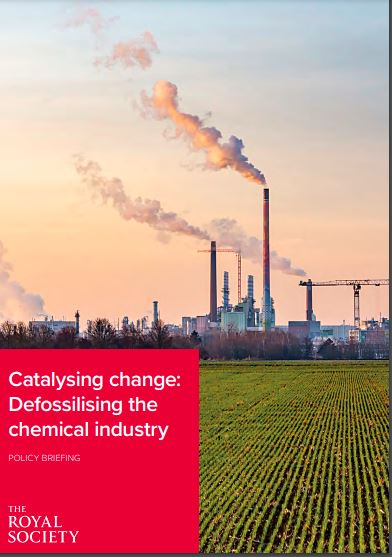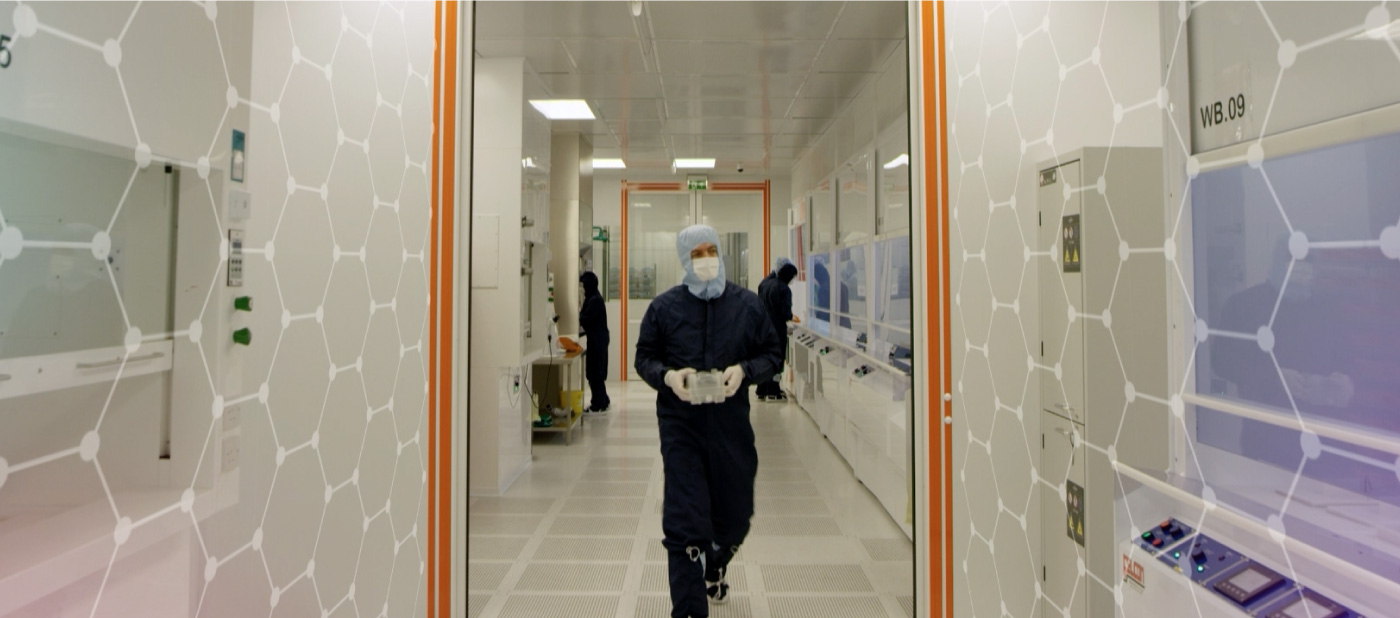This Royal Society Policy Briefing explores the potential to replace fossil feedstocks used in making chemicals with alternative carbon sources.
Chemicals are, of course, essential to our everyday lives – they are in the toiletries we use, the pharmaceuticals that ensure healthier lives, as as well as being in products such as plastics, paints and fertilisers.
The majority of chemicals are made using fossil feedstocks – namely oil, natural gas and coal. These feedstocks are then transformed into intermediate chemicals and then into the downstream consumer products used by all of us.
In the context of most industries, decarbonisation essentially refers to reducing emissions through measures such as electrification and improved efficiency of energy-intensive emissions.
However, given the nature of its feedstock’s, the chemical sector cannot fully decarbonise in the same way, as it requires carbon as an essential element to produce its products. This Royal Society briefing considers the role of defossilisation – which is the replacement of fossil-derived feedstocks with alternative sources of carbon whose production will result in much lower Green House Gas emissions.
For example, there is a lot of carbon tied up in polymers. Indeed 70% of the output from the chemical industry is polymers, much of which is still thrown away. By repurposing such plastics through recycling methods that break them down into their molecular building blocks, we can produce new chemicals and polymers.
Dr Lorraine Ferris, Royce Industry Fellow, who contributed to the report said:
“We know that defossilising the chemical sector and the transition to sustainable sources of carbon is a long term endeavour – it will require new chemical processes and new manufacturing methods, as well as significant capital investment in the chemicals supply chain. We need to make this investment attractive to industry by developing competitive alternatives to the current use of petroleum derivatives.
“However the innovation in this space is very exciting. From the development of new, lower energy manipulations of carbon chains, to scaling up the science that is happening in the labs, we are on a journey to the commercialisation of more sustainable products. Research going on at Royce and other RTOs in key fields of chemistry is central to the defossilisation of the chemicals industry. Exciting work going on in catalysis and electrochemistry could lead to breakthroughs which transform the process economics, making sustainable carbon the new normal.”
Demand
The report states that demand for embedded carbon in chemicals is forecast to double by 2050. Emissions will also increase if this growing demand is met with continued use of fossil feedstocks, fossil-based energy intensive production processes, and high levels of end-of-life product incineration. This will make it more difficult for society to reach net zero emissions targets and will have wider environmental impacts.
The alternative feedstocks explored in the briefing are biomass, plastic waste and carbon dioxide (CO2). These can act as sources of carbon required for the primary chemical building blocks which are used to produce intermediate chemicals and ultimately downstream consumer products. Sustainably produced chemical building blocks have the potential to plug into the existing chemicals supply chains, thus reducing the need for change and investment in the downstream chemicals users. In this way, the whole chemicals and polymers sector can significantly reduce its greenhouse gas emissions.
The report is clear that the defossilisation of the chemical industry will require intervention, investment and incentivisation from Government to ensure it happens. The public can play their part too by buying products that are sustainably sourced and drive the market in the right direction.
Royce Government Board Member, Dr Liz Rowsell OBE CChem FRSC, also contributed to the report, along with expert Researchers from across the Royce Partnership.




